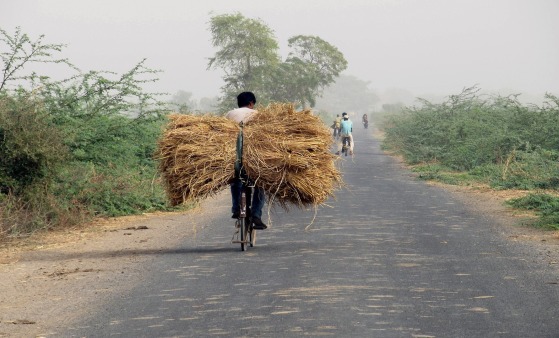The year 2011 has been the worst for Christians in India, with at least 1000 incidents recorded, according to a report released by the Catholic Secular Forum.
The report, Rising Anti-Christian Violence â€" 2011, highlights about 250 of the "most heinous crimes of targeted violence" against Christians in India, with data gathered from government records, media reports and help of activists and NGOs from different parts of the country.
Karnataka heads the list of top 10 persecution states, followed by Orissa where half a dozen martyrs died for refusing to yield their faith. Andhra Pradesh, Madhya Pradesh, Chhattisgarh, Kerala, Maharashtra, Uttar Pradesh, Tamil Nadu, and Jammu & Kashmir follow the list.
Importantly, the report categorizes the nature of the crimes with the list including death and murder, grievous injuries, rape/molestation, destruction of churches/houses and Christian property, desecration of bibles/religious articles, Christians jailed and arrested, church workers insulted/threatened, foreign missionaries deported, and more.
Releasing the report on Wednesday, Justice Michael Saldanha, the former judge of the Bombay and Karnataka high courts, said he had evidence of a thousand cases of religious liberty violations in Karnataka alone.
Karnataka, with a minimum of 3 - 5 attacks a day, was rightly accorded the rogue state status even though it did not have any recorded or direct killing as happened in Orissa, said Saldanha.
"The very large scale on which persecution is conducted almost daily by official agencies, even beats other BJP ruled states like Gujarat, Madhya Pradesh, Chhattisgarh, etc. Thousands of false cases are registered with the alleged connivance of the authorities, at the instance of the politicians to consolidate the majority vote," informed Saldanha.
Adding to what Saldanha spoke was former IIT-Bombay professor and writer, Ram Puniyani who spent decades studying the saffron right wing brigade and has devoted his life for communal harmony.
According to Puniyani, Hindutva affiliates had now clearly turned their attention to Christians, as they found the community to be soft targets, with little fear of retaliation.
"While attacks against Christians were widespread and scattered (urban and rural), more were seen in the Tribal, Adivasi, and Backward areas. It is here where Christians have been rendering yeoman service," said Puniyani.
"The attacks have been preceded by a constant propaganda that Christian missionaries are converting by force, fraud and allurement. But, the declining percentage of Christians in India as per the census figures - 2.60 in 1972, 2.44 in 1981, 2.44 in 1991 and 2.30 in 2001 - exposes this lie," he informed.
The head of the Mumbai-based Catholic Secular Forum, Joseph Dias, is also of an opinion that there is a clear pattern emerging that showed Christians were next on the Hindutva radar of terror.
The pan India attacks well documented, expose a pre-meditated sinister campaign to make soft targets of this micro-minority across the country in the year to come, he said.
The most recent form of persecution, according to Dias, is Christians branded as Naxalites, Maoists (like Arun Ferreira) or anti-national as in the north east region (profiling or stereotyping of Christians).
Dias opines that a communal riot-free India will continue to remain a distant pipe dream with stiff opposition to the proposed Communal Violence bill, likely to ensure that it is not passed. "Until and when that happens though, the vociferous Hindutva militants and right wing parties will continue to have a field day preying on the minorities."




